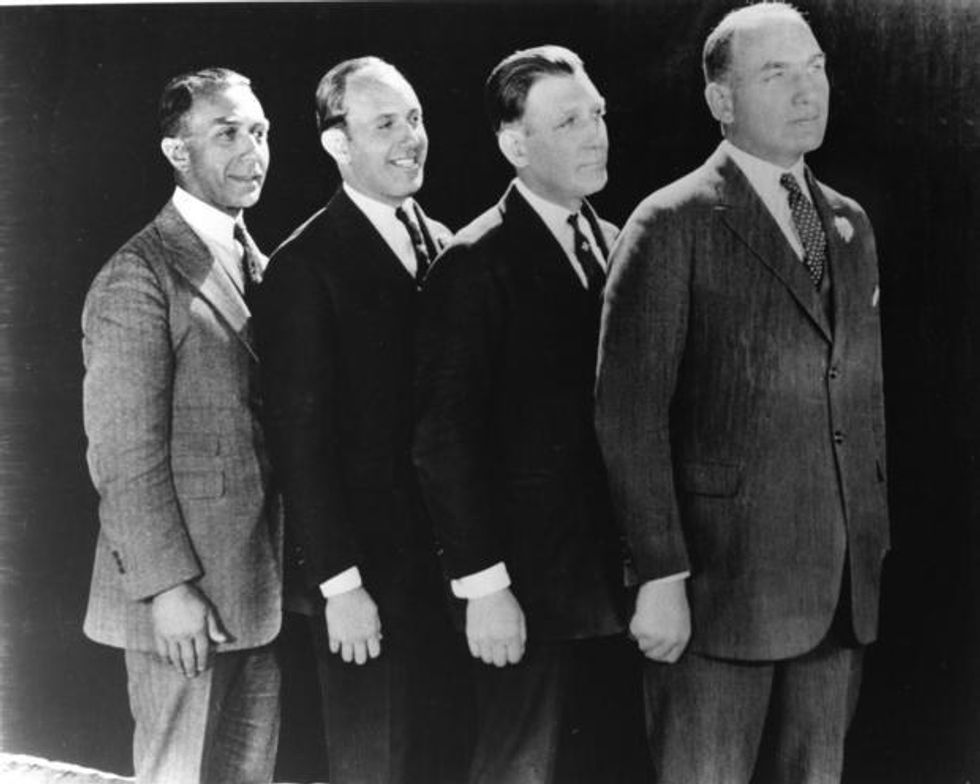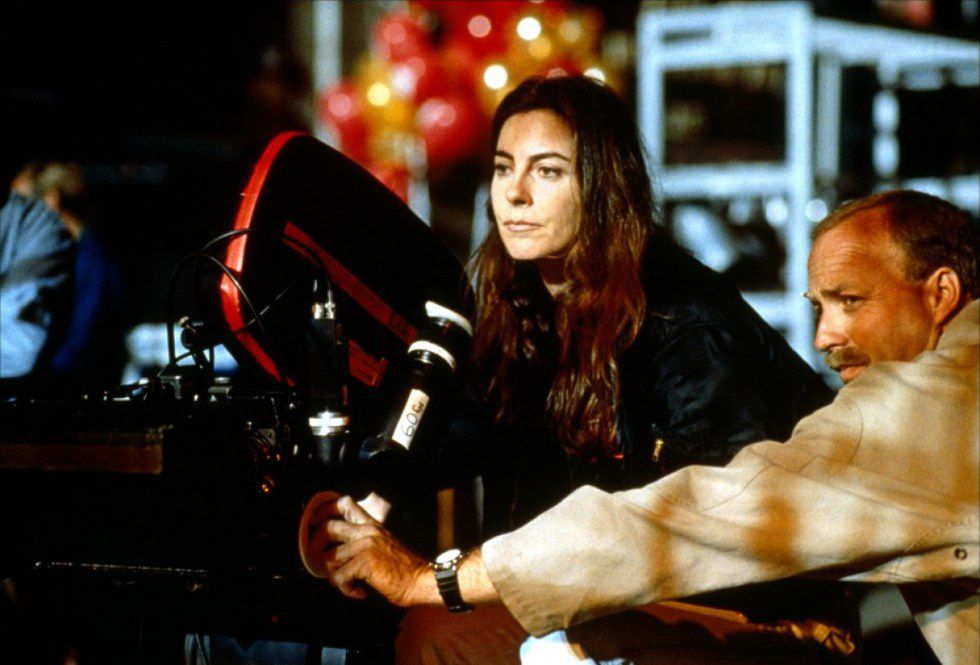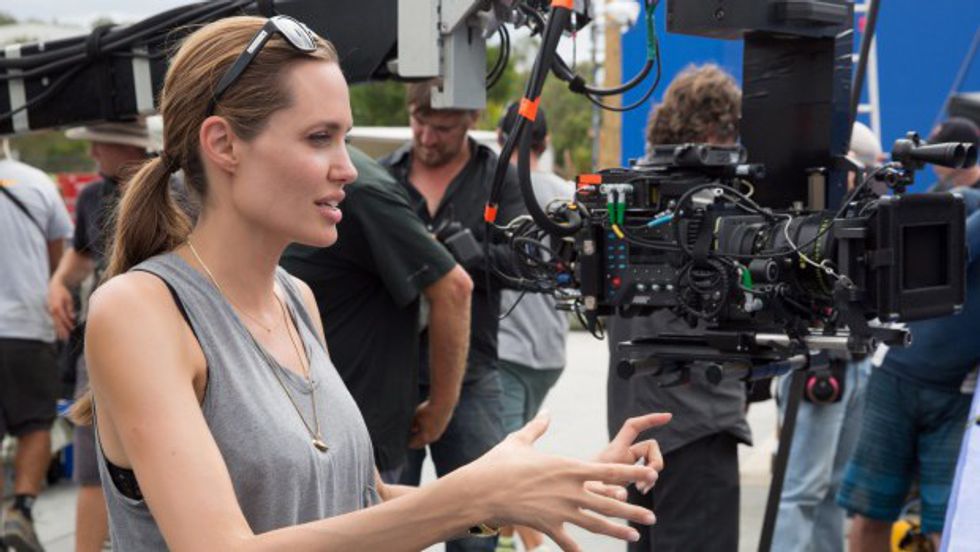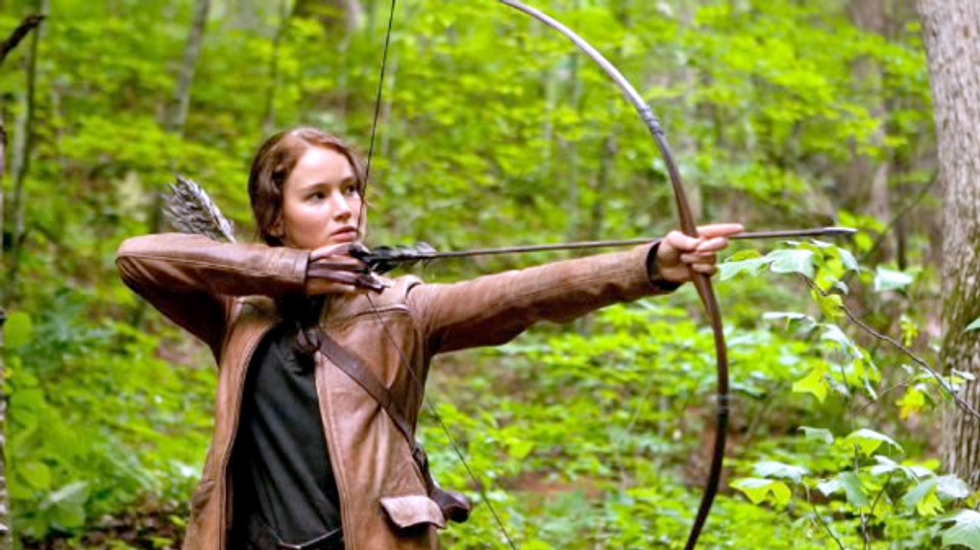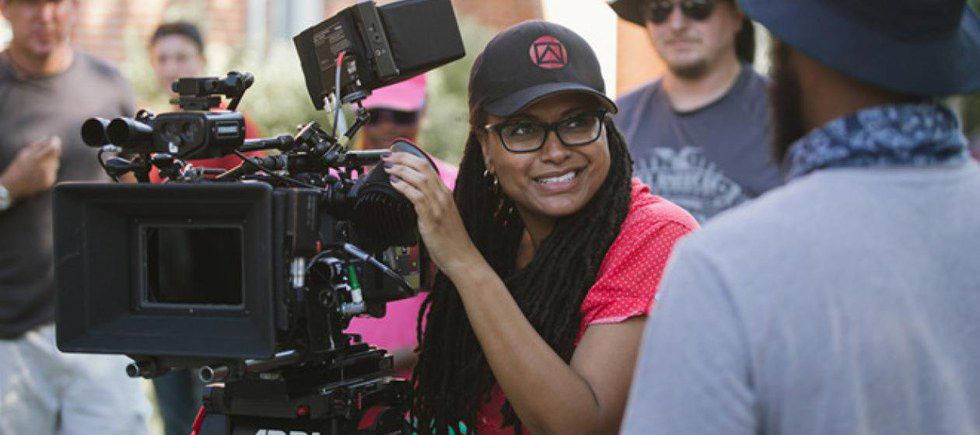Four years ago, I wrote a research paper for my AP English Language class that I think should be shared, not only because barely anything has changed in the industry, but also because hopefully "Wonder Woman" will put this topic higher in the conversation of Hollywood today.
So without further ado, meet junior year in high school me.
Brenna Elmore
AP English 11
28 May 2013
A Reasonable Approach to the Movie Industry: We Need More Women!
Steven Spielberg. Quentin Tarantino. Martin Scorsese. James Cameron. Christopher Nolan. Aside from their great talent, what do all these people have in common? For one, they are all names we as a movie-going audience surely recognize. They have directed some of the highest-grossing, most thought-provoking films of their respective generations. They have won awards, made millions, but above all, on the most basic of human levels, the people listed above all fit into the category of being male. Very few female directors have been able to break through this gender barrier set by prestigious men, and the ones who have, barely have anything to show for it. Why? Because men run Hollywood, and men choose men to win awards created by men.
It goes without saying that the movie industry is a testosterone-filled world. Why do they get to sit behind so many cameras? Who put them in charge? The short answer: other men. As it so happens, not just one man, but eight men founded the oldest movie studio in America, “Universal Studios.” Another significant example is “Warner Brothers Pictures.” As the name suggests, four brothers founded this immensely successful movie studio. Thus, power-hungry men launched movies in the beginning, and they continue to rule them unfairly. These men are the type of people who will legitimately tell a woman: “This is my America, these are my rules, this is my money…” before rejecting her from directing a film. Let’s face it -- men in Hollywood do not trust women. One male writer, Bret Easton Ellis, even went so far to say that “women lack a necessary implement: ‘the male gaze.’”
I will be the first to admit that I am addicted to movies. I’m the type of person that can sit in a theater for over nine hours, watching the “Lord of the Rings” trilogy, and never get bored. Many girls can’t say that. Ironically, my personal favorite movies are all directed by men -- “The Dark Knight Trilogy,” “Inception,” “Looper,” and “The Avengers,” just to name a few. So yes, I truly appreciate male directors and their compelling visions for movies. Nevertheless, I believe that just because a woman may not possess “the male gaze” doesn’t mean she can’t make one of the greatest films of all time; she simply needs to be given the opportunity.
The lack of female directors seems like a problem as easy to fix as the lack of food in the pantry -- just go out and get more! But the question still remains: why won’t anyone do that? I want to say that it’s plainly not fair, and there is certainly enough sufficient data to back me up. A study entitled “Exploring the Barriers and Opportunities for Independent Women Filmmakers” was conducted at the University of Southern California in which 11,197 directors, writers, producers, cinematographers, and editors were assessed. The study proved the extent of the problem. For one, only 29.8 percent of filmmakers out of the survey were female. Of those women, only 41 of them have made films in the top 100 released films every year across the decade, compared to a whopping 625 men.
Firstly, it’s not like the women aren’t attempting to make movies. (And great ones at that.) Kathryn Bigelow, everyone’s favorite female action/thriller director, and every woman’s favorite go-to director when trying to prove their talent, won a freaking Oscar in 2009. Not only that, but she was the first woman in history to win the esteemed award of “Best Director” for her war epic, “The Hurt Locker.” Then this year she went on to catch Osama Bin Laden! (In her Oscar-winning thriller “Zero Dark Thirty” of course.) Some other notable movies directed by women in 2012 and 2013 include “Brave,” “Cloud Atlas,” “In Darkness,” “Seeking a Friend for the End of the World,” and “The Guilt Trip." Women are clearly making inroads, but it’s not their fault when their movies won’t get funded.
Ponder this for a moment: Females have exceeded in countless other aspects of life -- literature, music, theatre, politics, and business. Where would we be in literature without the works of Jane Austen? Where would we be in music without Madonna or Adele? Where would we be in politics without Sandra Day O’Connor or Hilary Clinton? Women like them have been shaping the world around us just as much as men since the birth of our country. As a nation that has grown and thrived since our independence was gained in 1776, we have always been a nation of prejudice. First it was the Native Americans, then the African Americans, then the immigrants. But between all those people, hiding in the background for over 100 years, being pushed away by “more pressing issues,” were the women. As it so happens, director Naomi Foner recently admitted: “People still don’t trust female pilots. We’ve been acculturated to believe that in cases of extreme stress, women will crumble." Really? Tell that to Amelia Earhart.
So yes, women in other fields of entertainment are accomplishing great strides. Just look at Oprah Winfrey, one of the most influential women in the world. Television did that for her. In another entertainment sphere, theatre, women are making great leaps as well. On Broadway, men typically direct four out of five shows, but recently, theaters in New York have been testing that statistic. Signature Theater now has three plays all run by female directors, and Playwrights Horizons Theater has women staging three of their six shows this season. Other industries are taking the risk and watching it pay off. So much so that Bruce Norris, a satirist, said that he’s traditionally preferred female directors in theatre “because they are less territorial in the rehearsal room and tend to accommodate writers better than male directors do." Hmm, I guess women don’t have “the male gaze” because they are too busynot being power-hungry.
Lastly, what about the multitude of films that feature a female main character? “The Hunger Games” is a perfect example because there is no doubting the fact that Katniss is the character telling the story. Since a woman wrote the novels, she was able to portray Katniss’s strength more clearly, as the books were written in first person point of view. As for the movie adaptation, Gary Ross wasn’t quite able to capture the same “spirited, independent woman” mentality as a woman director might have. (Not to mention the “shaky cam,” but that is another argument entirely.) Ross couldn’t quite get inside Katniss’s head; he couldn’t sense her fear himself -- he was just simply making another movie. A woman would have taken her feelings into account because she would have placed herself in Katniss’s frightening position and in doing so, make it seem effortless.
Women are just as determined and as talented as men, able to pull off action movies like “The Hurt Locker,” but also able to pull of romances, comedies, documentaries, fantasies, and any other movie genre we feel like making up. Like literature, music, and politics, we can thrive in the directing world, a world full of testosterone, and make it our own, blending and meshing with the gore and power of the men. Programs across America such as “Girls Make Movies,” “GirlsFilmSchool,” “Girls-Eye View,” “Divas Direct,” and “Reel Girls” are preparing young women to navigate film departments and eventually gain credibility, securing the next generation of women filmmakers. We may be behind, but it’s not too late to stage a comeback. Bigelow herself once said, “I suppose I like to think of myself as a film-maker, rather than a female film-maker." Now it’s time for everyone else to see it that way.
So yeah, that was an essay I wrote in eleventh grade, and sadly, nothing has changed. Granted, it was only four years ago. But a great deal can change in four years, can't it?




